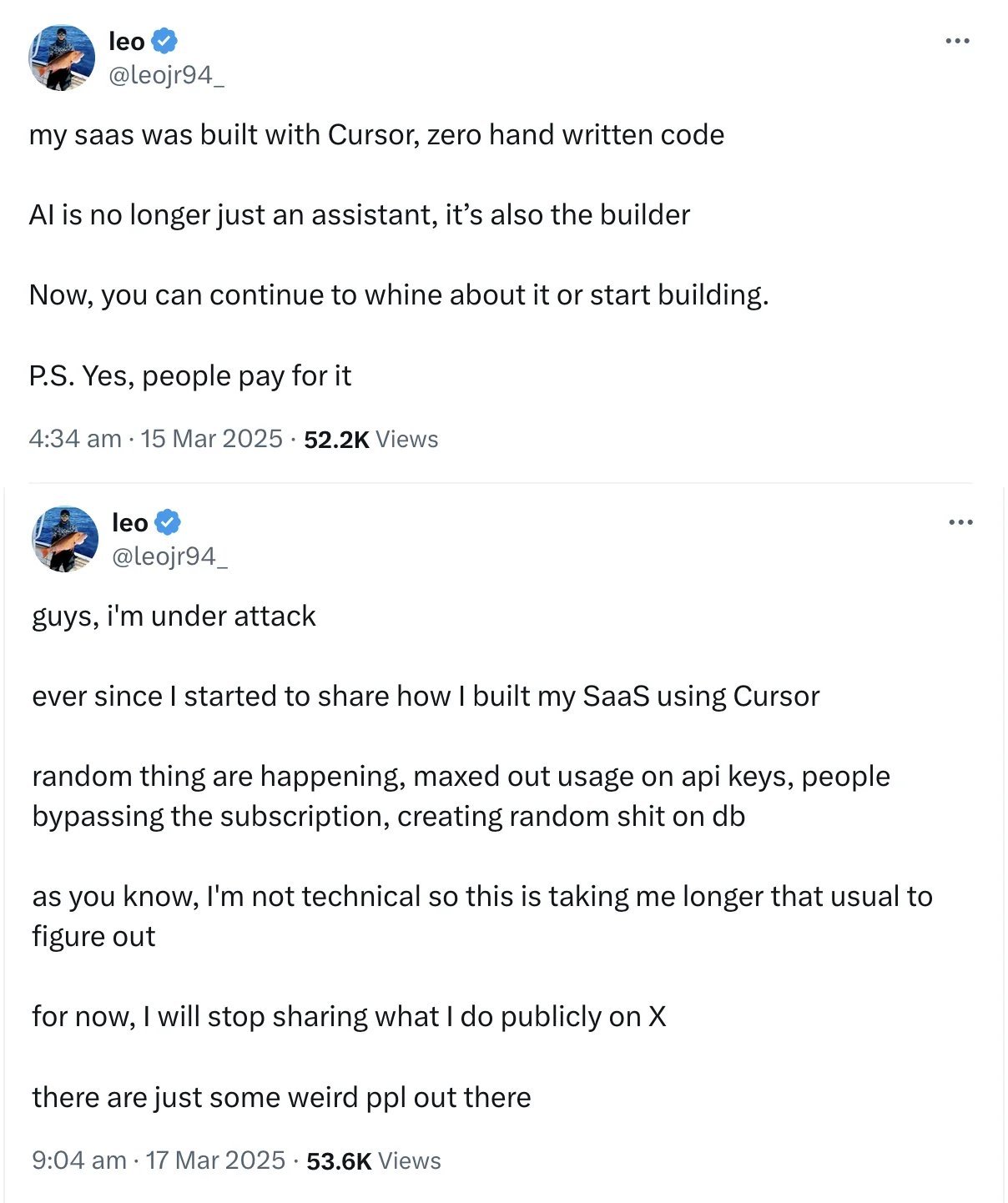In the modern tech landscape, product owners often assume that software will “just work” safely. But security isn’t automatic, and a lack of foundational understanding can lead to serious vulnerabilities. While AI has become a valuable tool in development, it cannot replace the expertise of seasoned developers who can anticipate, diagnose, and resolve complex security flaws. In this article, we’ll explore why relying solely on assumptions—or even AI—can put users at risk, and how experienced developers have rescued failing projects from disaster.
The Illusion of Safety in Software Development
Product owners, especially those without technical backgrounds, often focus on features, user experience, and business objectives. Security tends to be an afterthought—if it’s considered at all. They might assume:
- “Our framework handles security automatically.”
- “AI-generated code must be secure.”
- “Hackers won’t target us because we’re a small company.”
These assumptions are dangerous. Security must be deliberately designed into a system, and failing to do so can lead to catastrophic breaches.

Real-World Examples of Projects Gone Wrong (And How Developers Saved Them)
1. The E-Commerce Disaster: Exposed Customer Data
A startup built an e-commerce platform using a popular low-code solution. The product owner assumed that security was baked into the platform. What they didn’t realize was that their database had been left publicly accessible, exposing thousands of customers’ personal and payment data.
How an Experienced Developer Saved It:
A senior developer was brought in after an independent security researcher exposed the vulnerability. The developer:
- Implemented proper authentication and access controls.
- Added encryption for stored customer data.
- Set up automated security testing to prevent future leaks.
Without this intervention, the company would have faced lawsuits and lost customer trust.
2. The AI Code Generator Mistake: Unsecured API Keys
A SaaS company decided to speed up development using AI-generated code. Their AI assistant provided clean-looking API integrations, but it didn’t consider security best practices. The AI-generated code stored API keys directly in the frontend, exposing them to anyone who inspected the browser’s developer tools.
How an Experienced Developer Saved It:
A security-conscious engineer audited the code and:
- Moved API keys to a secure environment variable setup.
- Implemented proper authentication (OAuth2) instead of static keys.
- Set up monitoring alerts for unusual API usage.
The fix prevented potential attackers from hijacking API calls and exploiting user data.
3. The Blockchain Nightmare: A Flawed Smart Contract
A startup launched a DeFi project, assuming that a popular AI tool could generate Solidity smart contracts with minimal oversight. The result? A flawed contract that allowed attackers to drain funds due to a reentrancy bug.
How an Experienced Developer Saved It:
After losing some initial funds, they hired a blockchain security expert who:
- Refactored the smart contract using best practices.
- Implemented reentrancy guards to prevent exploit attempts.
- Conducted thorough security audits before redeploying.
Without an expert, the project could have been completely compromised.
AI is a Tool, Not a Replacement for Expertise
AI-generated code can be helpful, but it lacks real-world context. AI doesn’t understand business logic, legal requirements, or evolving security threats. An experienced developer:
- Thinks critically about how code will be used (and misused).
- Understands regulatory compliance (GDPR, PCI-DSS, HIPAA, etc.).
- Can adapt and apply security measures based on the specific application.
The Takeaway: Invest in Expertise Before It’s Too Late
Security isn’t something that should be bolted on at the end of a project—it should be a core consideration from the start. Product owners must:
- Consult experienced developers early in the development cycle.
- Prioritize security just as much as features and user experience.
- Recognize that AI is a helpful assistant, but not a substitute for human expertise.
Ignoring security can lead to costly breaches, reputational damage, and legal consequences. But with the right developers involved, businesses can build not just functional, but also secure, reliable, and scalable software.
Have You Seen Security Mistakes Firsthand?
What’s the worst security oversight you’ve encountered in a project? Share your experiences in the comments!